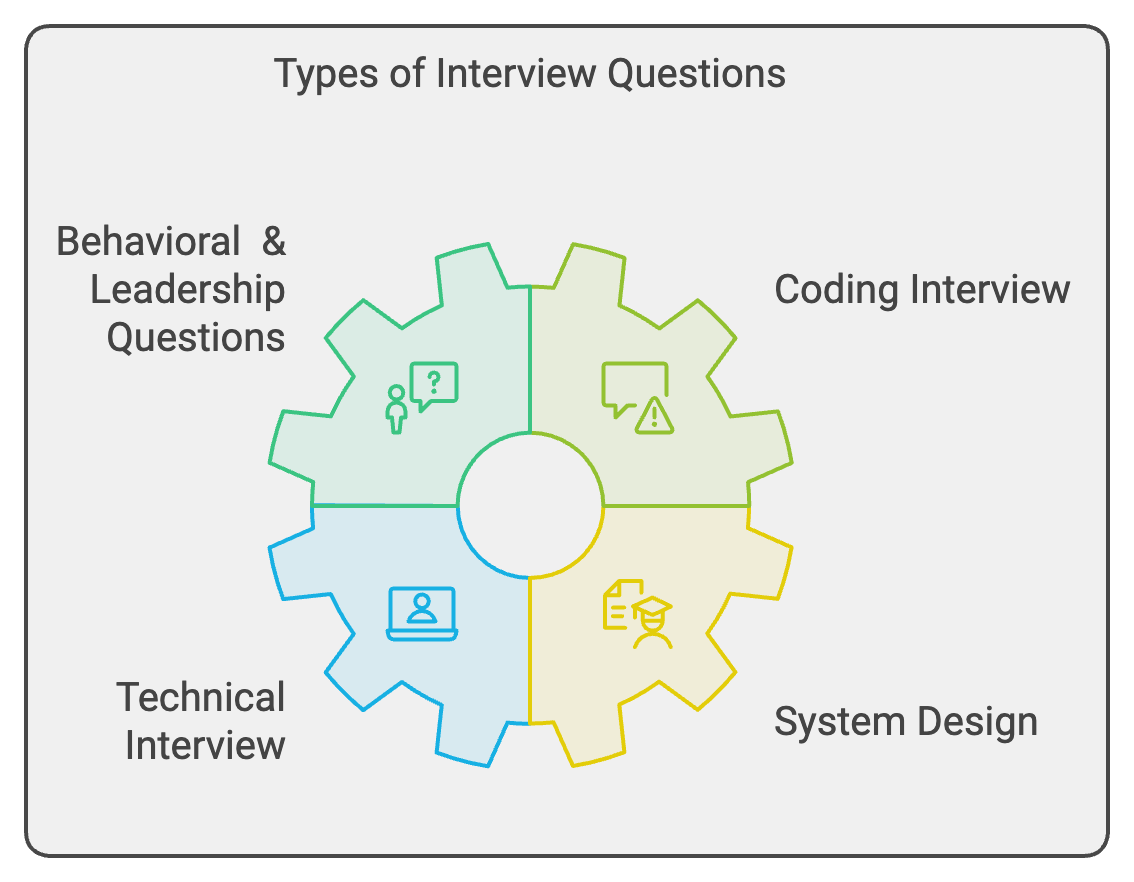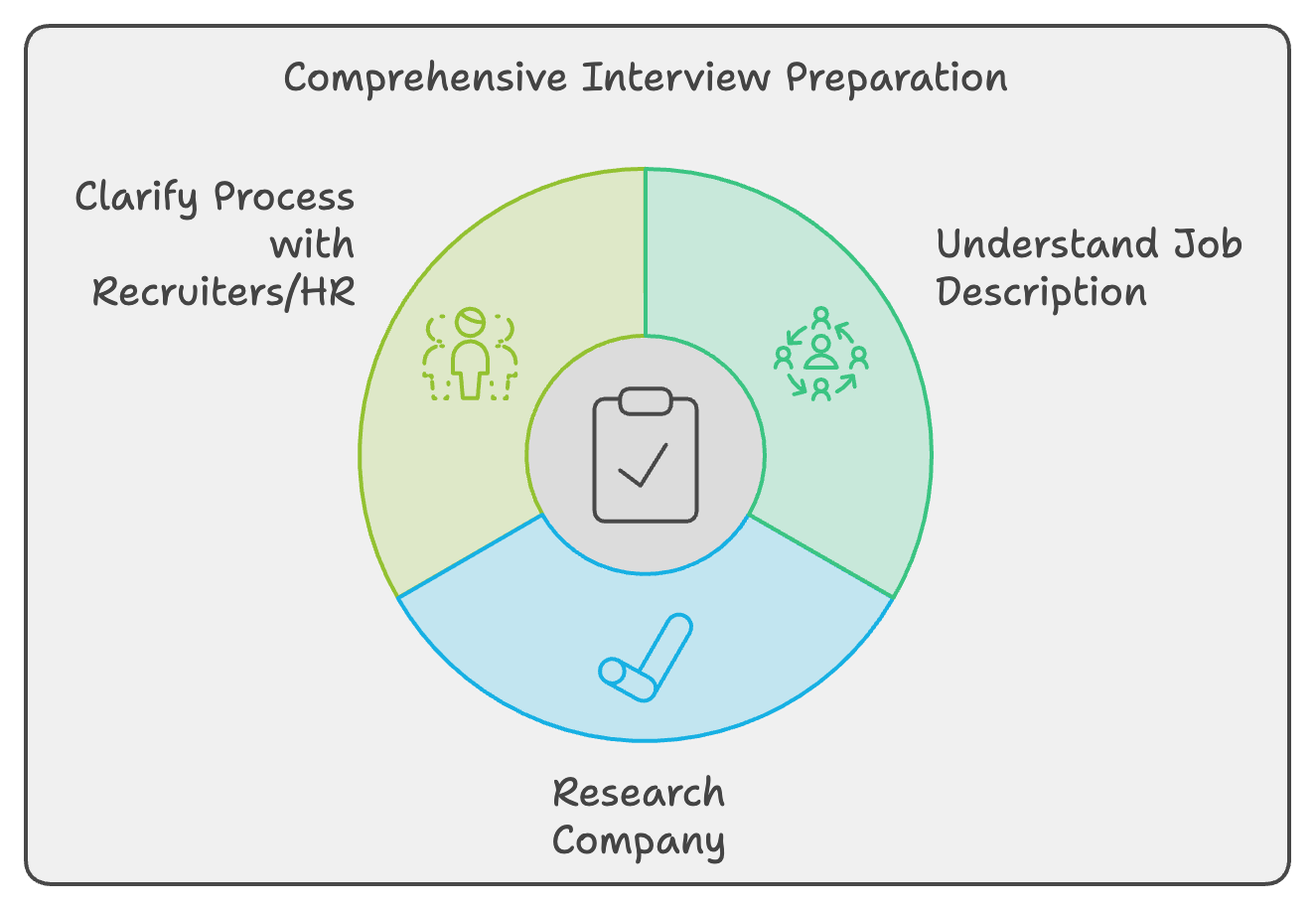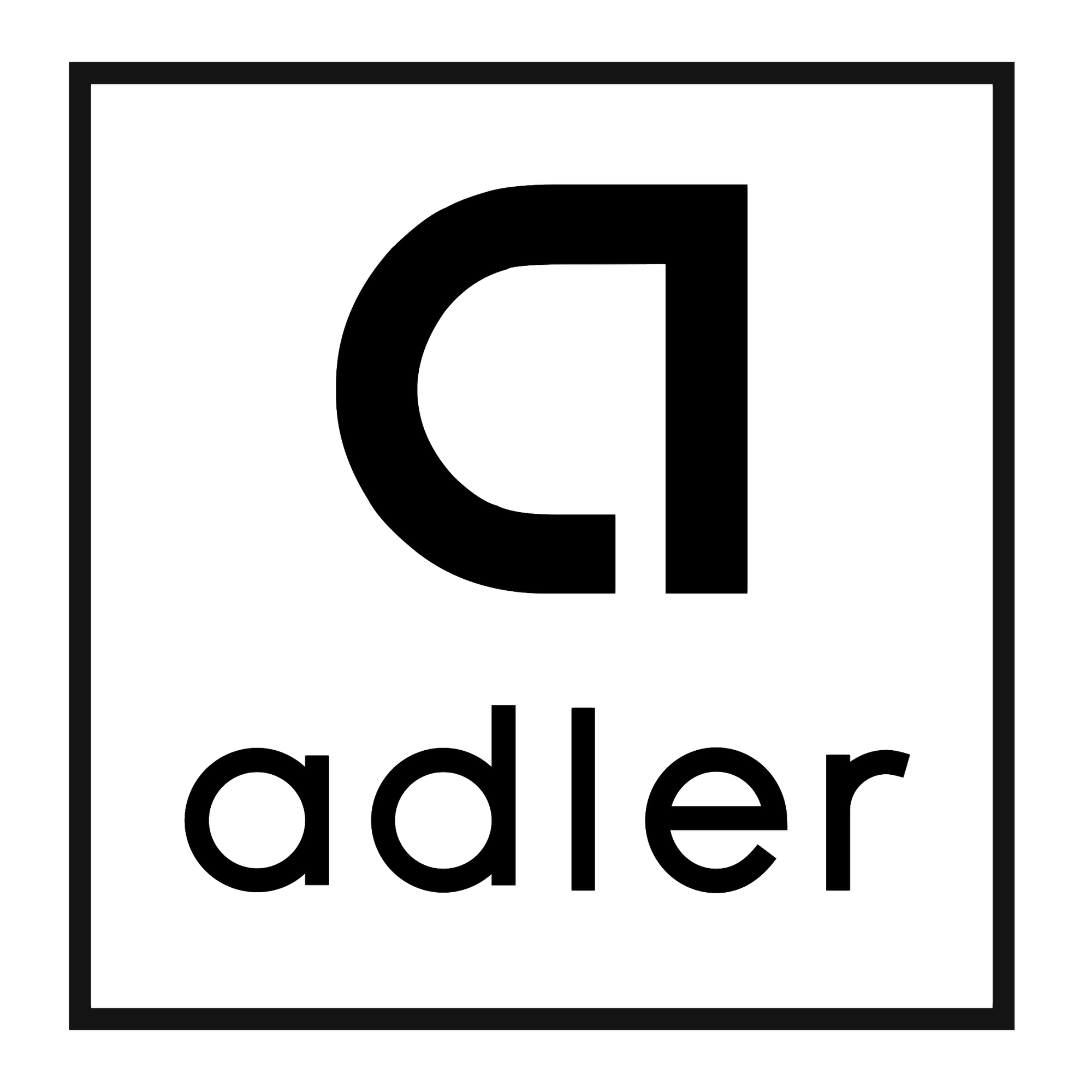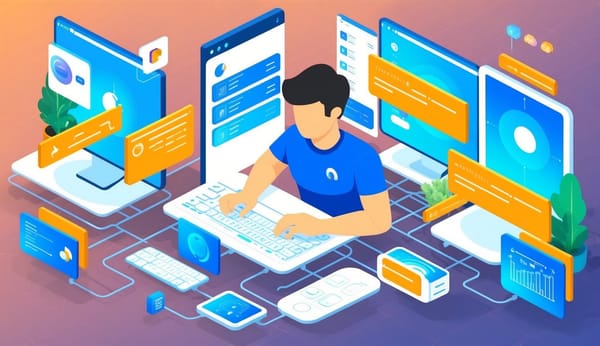Mastering Engineering Manager Interviews: The 6 Resources I Use to Land My EM Jobs

Are you ready to take the next step in your career as a software engineering manager? Facing an interview for this role can feel intimidating, but there's a method to mastering it. Understanding how to navigate both the technical and behavioral aspects of the interview is key to standing out.
To help make the preparation process more straightforward, we’ve compiled ten essential resources along with practical tips to focus on key areas! With the right tools and knowledge, we can enter interviews feeling confident and ready to make an impact!
What to Expect: Interview Question Types

1. Coding Interview
While not all engineering managers are expected to code regularly, these interviews ensure that we can engage in technical discussions with our team. Typical questions focus on algorithms, data structures, and problem-solving techniques. It’s beneficial to prepare by reviewing coding platforms such as LeetCode to practice writing clear, efficient code. Our goal should be to demonstrate that we are capable of guiding technical decisions and offering meaningful feedback to our teams.
Example Questions:
- Implement a function to find the shortest path in a graph.
- Write a program to sort a list of numbers using merge sort.
- Given a string, find the longest substring without repeating characters.
- Design a stack that supports push, pop, and retrieving the minimum element in constant time.
2. System Design Interview
These interviews focus on how we approach designing complex systems, considering factors like scalability, performance, reliability, and security. We may be asked to design a high-level architecture for a given application or solve a specific problem, such as handling high traffic or ensuring data consistency. Our approach should include breaking down the problem, outlining our design choices, and explaining trade-offs. This type of interview helps showcase our ability to think strategically and translate business requirements into technical solutions.
Example Questions:
- Design a URL shortening service like Bit.ly. Consider data storage, API endpoints, and system scalability.
- Create a high-level architecture for an e-commerce website. How would you handle inventory management, user authentication, and payment processing?
- How would you design a distributed caching system to improve the performance of a read-heavy application?
- Design a notification system that can handle millions of users receiving real-time updates.
3. Technical Interview: Technical Questions & Experience
The technical interview is distinct from the coding or system design segments and is more focused on evaluating our overall technical expertise and experience. This could involve discussing our past projects, our knowledge of various tools and frameworks, and how we’ve applied technology to solve complex challenges. Questions may touch on specific technologies we have worked with, architectural patterns, or our understanding of software development best practices.
Example Questions:
- What are its benefits and drawbacks compared to monolithic systems vs micro-service architectures?
- Describe a challenging technical problem you encountered in a past project and how you resolved it.
- How do you ensure the quality and scalability of the software your team builds?
4. Behavioral Interview & Leadership Interview
Behavioral and leadership interviews are designed to evaluate our management style, problem-solving approach, and ability to lead teams effectively. It's the core part of the interviews for management positions.
For behavioral questions, they often use questions that start with “Tell me about a time when…” and focus on past experiences, including conflict resolution, motivating teams, or managing stakeholders.
For leadership questions, the emphasis is on our ability to build and maintain strong, high-performing teams. It’s helpful to use structured frameworks like the STAR (Situation, Task, Action, Result) method to answer these questions, ensuring that we clearly outline the context, our approach, and the impact of our actions. Preparing concrete examples that demonstrate our leadership principles and management style will allow us to highlight our strengths and establish our credibility as an engineering leader.
Example Questions:
- Tell us about a time when you had to manage conflict between team members. How did you resolve it?
- Describe a project where you had to balance technical debt against the need for new features. How did you prioritize?
- How do you provide feedback to team members who are underperforming or need improvement?
- Can you share an example of how you influenced a major technical or business decision without having direct authority?
Six Essential Resources
- Video Course Platform: Exponent (Paid)
Exponent is a platform that offers resources and guidance for preparing for interviews in various technical and management roles. I took their EM prep course and I found some piece of knowledge very valuable. It's also my first materials for preparation so it has a very comprehensive guideline of how to start the preparation in each part. - Interview Guideline Book "The Software Engineering Manager Interview Guide" by Vidal Graupera
I would say this is the Bible during my Engineering Manager interview preparation process. The content is highly practical and focuses on real-world scenarios and best practices. Without exposing too much details, I would recommend everyone who is doing the preparation to take a look. You can check this mock interview video with the author on Exponent to get his insights. - Video Course Platform: AlgoExpert.io (Paid)
AlgoExpert is a platform offering video (mostly) courses on technical & behavioral interviews. The content is mostly duplicate with the previous materials but they have their own way to explain the same problems and questions. I personally find them easier to digest than on LeetCode or System Design Interview. It's not free, but we probably only need one or two months to digest most resources on this platform. - Coding Interview Practice Platform: LeetCode (Freemium)
LeetCode is one of the most popular platforms for practicing coding problems. Start from the easy questions LeetCode to brush up on coding basics, and gradually move on to the medium questions. It's going to be overwhelming at first even for the easy questions, but we'll usually start to be able to keep up. Spend 10-20 minutes a day for this. We'll see the progress. I personally would suggest focus on the top 150 problems that are the most fundamental for any type of questions.Books and Courses - Coding Interview Book: "Cracking the Coding Interview" by Gayle Laakmann McDowell (Paid)
I personally didn't use this, but it is highly recommended by a lot of online platforms. It provides guidance on how to approach technical interviews with an eye on clarity and communication, which are the skills important for both engineering managers and individual contributors. - System Design Book: "System Design Interview - An Insider's Guide" by Alex Xu (Paid)
This book is a must-read for anyone preparing for system design interviews. It goes beyond the basics and dives deep into large-scale distributed system design, providing examples that closely mirror real-world interview questions. It's helpful not only for interviews, but for training a systematic approach to problems in our daily workflow as IC or EM as well.
Preparing for the Upcoming Interview

When getting ready for a software engineering manager interview, it's important that we focus on understanding the job role, researching the company thoroughly, and clarifying the process with recruiters. Let's break down these steps to ensure success.
Understand the Job Description
When applying for an Engineering Manager (EM) role, it's essential to thoroughly analyze the job description to understand the unique expectations. Here’s how to approach it:
- Identify Management vs. Technical Responsibilities: Some EM roles are purely focused on people management, mentorship, and strategic oversight. Others require us to be hands-on, contributing code and actively participating in the technical development process.
- Scope of Technical Leadership: Certain positions emphasize cross-functional leadership, where we’re expected to manage teams across the full stack (frontend, backend, and sometimes DevOps). Others might require domain-specific leadership, such as being a specialist in either Frontend (FE) or Backend (BE) development.
- Understand the Team’s Needs: We should look for phrases like “full-stack leadership” or “deep knowledge of FE/BE technologies” to gauge whether the role is broad or specialized. It’s important to determine if the job description mentions specific tech stacks or methodologies, as these details signal what the team values in a technical leader.
- Tailor Our Application: We should highlight experiences and achievements that align with the role’s requirements, whether that’s managing diverse engineering teams or driving hands-on technical projects. Our resume and cover letter should reflect our adaptability, technical expertise, and strategic vision as required by the role.
Breaking down the job description this way ensures you present yourself as the right fit, showing a clear understanding of the company’s specific needs.
Research the Company
Knowing about the company is just as vital. We would want to dive into the company's mission, values, and culture. This information gives insights into whether our own values match and how we can contribute to their goals.
A practical step is looking into recent projects or technologies they focus on. Understanding their products and innovations helps us tailor our discussions, showing how we fit into their future plans. Exploring their challenges and how our unique skills can address them gives us a competitive edge.
Clarify the Process with the Recruiters/HR
Let’s ensure we have a clear grasp of the interview process. Usually, there is a recruiter or HR representative when setting up the interviews. There might also be a casual chat session. Here are some questions I would clarify when talking to recruiters or their HR:
- Understand the Interview Stages: We should ask the recruiter for a detailed overview of the interview stages and what each step involves. This includes finding out if the process will include coding tests, system design interviews, behavioral rounds, or panel interviews.
- Clarify the Evaluation Criteria: It’s important to clarify what skills and experiences will be evaluated at each stage. I usually go with the question: "what does a successful candidate look like for this role?"
- Confirm the Participants and Roles: We should ask who will be involved in each round. Knowing whether we’ll be speaking with other managers, senior engineers, or HR will help us tailor our responses. For example, if the interview involves cross-functional partners like Product Managers or Designers, we should be prepared to showcase our collaboration and cross-team communication skills.
- Check for Pre-Interview Materials: Inquire whether there are any specific resources or preparation materials provided for candidates, such as case studies or coding challenges. Some companies may offer a prep guide or outline key focus areas, which can be invaluable for targeted preparation.
Other Tips for Preparations

Preparing for a software engineering manager interview takes more than technical knowledge. Practice, mindset, and understanding the interview process are key. Let’s explore some effective practices to give us an edge.
Mock Interviews & Practice
Engaging in mock interviews can greatly improve our chances of success. By simulating real interview scenarios, we become more familiar with what to expect and gain confidence. We should set up these practice sessions with peers or mentors who can provide constructive feedback.
Practicing answers to common questions sharpens our responses. Resources like software engineering manager interview questions can be valuable. Focusing on clarity and conciseness helps us communicate effectively, which is crucial for a manager's role. Recording these sessions can also help us find areas for improvement.
Dos and Don’ts During the Interview
Dos:
- Discuss Real-World Scenarios: Use specific examples to illustrate our management style and problem-solving approach. Using the STAR approach would be a good idea.
- Ask Thoughtful Questions: Toward the end of the interview, use the opportunity to ask questions that show our genuine interest in the company’s team structure, culture, and challenges.
- Be Honest About Challenges: When discussing past experiences, be honest about challenges you faced and how you overcame them. This demonstrates our ability to handle setbacks and find solutions.
Don’ts:
- Don’t Give Generic Responses: Avoid vague answers like “I manage teams effectively.” Instead, provide detailed, context-rich examples that highlight specific actions and results you achieved in our previous roles.
- Don’t Skip Behavioral Questions: Some candidates neglect to prepare for behavioral questions, thinking their technical experience is sufficient. Instead, practice behavioral questions about leadership, teamwork, and handling difficult situations to round out our interview performance.
- Don’t Shy Away from Discussing Failures: A common mistake is avoiding questions about projects that didn’t go well. Being open about failures and what we learned from them shows resilience and a growth mindset, which are valued traits in engineering leadership.
Final Thoughts
Preparing for the interview can be challenging, but by focusing on key areas such as coding, system design, and behavioral skills, we can approach it with confidence. The process is not just about showcasing our skills but also about demonstrating how we can align with the company’s vision and support the team’s growth.
By understanding the job requirements, researching the company, and clarifying the interview process, we’ll be well-prepared to present ourselves as well-rounded candidates ready to take on the challenges of leading high-performing engineering teams. Our path to mastering these interviews involves understanding our strengths and presenting them clearly.
Let me know if you have any questions! Feel free to drop a comment or send me a message to see if I can help!





